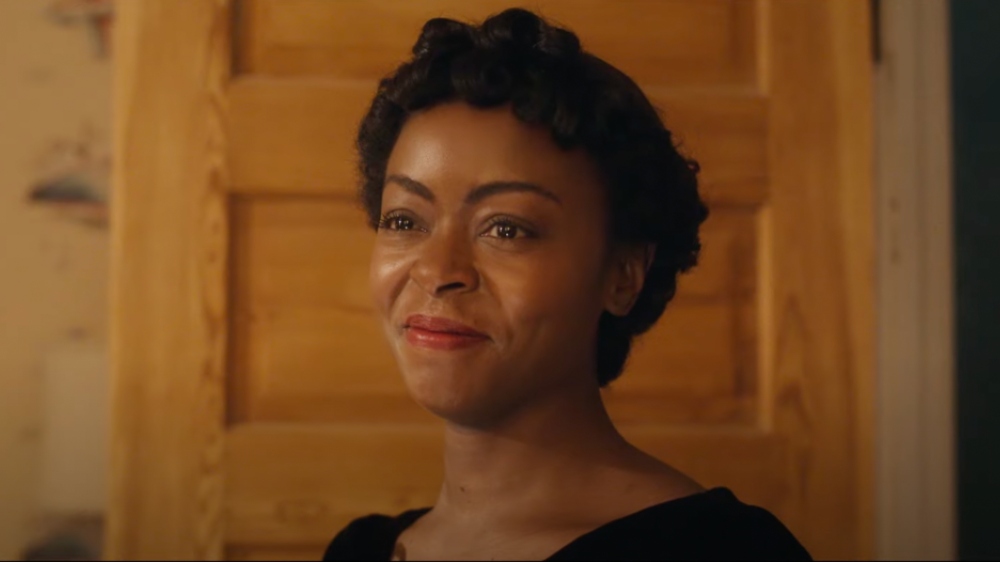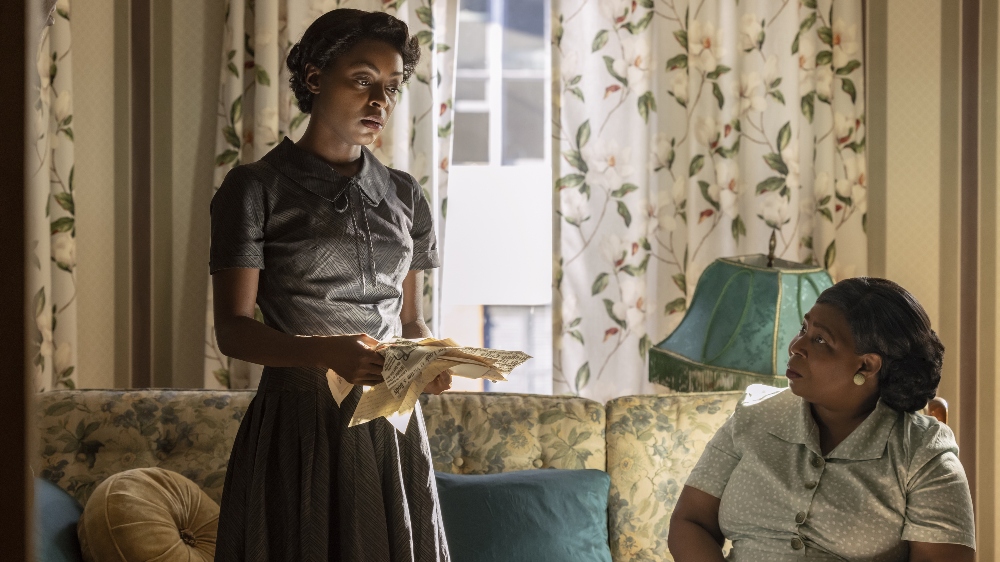Some episodes of human history are so important that they will inevitably receive full-blown cinematic treatment, even if injustice, erasure, and perhaps even the difficulty of the subject matter delay such representation for several decades. That is the case with the horrifying story behind the brutal lynching of 14-year-old Emmett Till in Money, Mississippi, in 1955 — and of his mother Mamie’s quest to pursue justice in the wake of his death.
That tale is now the subject matter of a new film, Till, which premiered at the 60th New York Film Festival last weekend, directed by Chinonye Chukwu (Clemency) and starring Danielle Deadwyler (The Harder They Fall). And while the film should be commended for its script (by Chukwu and Keith Beauchamp), which improbably navigates a delicate, often horrifying story with impressive aplomb, the bulk of the credit here belongs to the movie’s star, Deadwyler, who is simply mesmerizing as Emmett’s grieving but determined mother.
Till opens in suburban Chicago in 1955, where Mamie Till lives a mostly peaceful life working as the only Black person in her office, and trying her best to shield her son, Emmett (Jayln Hall), from the racism, fear, and hatred that she knows is endemic outside of their South Side enclave. Mamie spends her days playing cards with her friends and spending time with her paramour, Gene (Sean Patrick Thomas), as well as her mother, Alma (an unfortunately underused Whoopi Goldberg), and when her beloved son asks to spend a few days with some cousins down South, she reluctantly agrees despite some initial concerns.
Those fears prove justified, for the rest, as they say, is tragic history. Emmett dares engage in conversation with a racist white lady (Haley Bennett) which leads to his kidnapping and, eventually, his brutal murder. The sad tale is now part of this country’s history, and there’s no hiding it, which is why Mamie insists on having an open casket at Emmett’s funeral — so that the world can see the inhumane, depraved nature of his murder. As she explains in a particularly moving scene, she did everything she could to shield her son from hatred, and he didn’t deserve his cruel fate.

Chukwu and Beauchamp have no easy task as screenwriters. here. There are plenty of heroes and villains across all races, the most notable hero being the later-slain Civil Rights activist Medgar Evers, played by Tosin Cole. There are moments where your sympathies may shift from one person to the next, where, in grief and in pain, this or that character may not act how you or I might. Race infuses the entire proceedings, of course, and sadly, few subjects remain as incendiary today, particularly in the realm of entertainment culture. In the end, though, the duo deliver a script that is respectful of its weighty subject matter, sympathetic and faithful to Mamie’s evolution from grief and desperation to activism, and adeptly navigates a half-dozen potential cultural potholes. Perhaps this critic is naïve to think that this film will be above the reproach of the constantly-enraged culture monsters that dominate the discourse, but it should be, as it makes every effort to consider all viewpoints — sometimes, in fact, to the detriment of the film.
Below the line, the two aspects that really stand out are the costumes, designed by Justine Seymour, and the score by Abel Korzeniowski (A Single Man). Neither effort is quite great, but both are quite good, as the costumes emulate the 1950s well and the differences between Northern and Southern people back then, but there are times when they feel a bit too “Hollywood” and not what people, particularly the visibly impoverished Southern characters, would necessarily wear at the time. Korzeniowski’s score provides the secret sauce to the second half of the movie with its relentless, unforgiving dramatic crescendos that succeed in yanking the tears from your ducts, but is too playful and bouncy during the film’s troublesome first half, thereby contributing to the jarring tone of certain scenes.
As she did with Clemency, Chukwu proves once again that she can tell a difficult story very effectively by not getting in the way of her characters or trying to trick you with fluff that distracts from a story she trusts to be powerful. It is, however, Deadwyler who truly impresses here. She plays Mamie as a composed, put-together woman, but one who at times loses her composure — both for good reasons and at the right moments. True, she plays an inherently sympathetic character — a mother whose only son was brutally murdered — but one of the things that make her performance awards-worthy is how she keeps you transfixed as her character moves violently between the different stages of her grief.

Those violent swings may represent the biggest complaint one can lodge against Till — that, like its central character, it moves from being a movie about grief and sadness to a movie about activism to a movie about history. And while those tonal shifts definitely register, they don’t have too much because Deadwyler guides the viewer, with an artistic version of the confidence and determination that clearly propelled Mamie Till to the other side of the tragedy that befell her. To see Deadwyler’s Mamie interact with the people who would help her and those who would not, the people who would praise her and the people who would attack her, is simply incredible. To see her explain to different constituents what she is going through, alternately reacting quietly and loudly, and then take the stand (as well as the stage) in pursuit of justice, is equally enthralling. This role is a high-wire balancing act without a net, and Deadwyler travels across that wire as if floating above the challenge.
It is hard not to end a review of Till without returning to the fact that this is a horrific true story and a stain on America’s history no matter how many bills are passed in an effort to prevent another incident like it. Art and cinema are meant to entertain, inspire, and inform but sometimes they can serve a cathartic purpose as well. Till does all of that, and it also makes you incredibly sad. That is the power of this medium, I suppose, and the tragedy of the lives that are sometimes depicted onscreen.
Grade: A-
Till premiered at the 60th New York Film Festival on Oct. 1 and will be released in U.S. theaters on Oct. 14 by United Artists.



